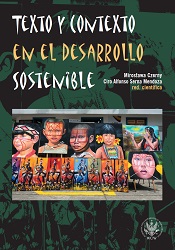APROXIMACIÓN AL PENSAMIENTO AGROECOLÓGICO EN AMÉRICA LATINA Y EL CARIBE
AGROECOLOGICAL THINKING APPROACH IN LATIN AMERICA AND THE CARIBBEAN
Author(s): Diana Socorro Daza Ardila, William Fernando Castrillón Cardona, Claudia Jurado Alvarán
Subject(s): Geography, Regional studies
Published by: Wydawnictwa Uniwersytetu Warszawskiego
Keywords: agroecology; green revolution; climate change
Summary/Abstract: The achieved results of human cultural evolution, scientifi c and technologicaladvances have expanded the needs for the use of matter and energy, converting humangroups into consumerist societies eager for food, water, wood and energy, forcing a radicaltransformation of ecosystems, a situation aggravated by the current economic model,which seeks permanent economic growth and forgets the limits of the planet. The traditionalagronomic model imposed by the green revolution is useful on fl at terrain, but hasrestrictions on slopes, and now it shows confl icting results with regard to degradation,erosion, loss of natural ecosystems, decreased biodiversity and water pollution, with theaggravating factor that today the problems of world hunger have not been solved, thesafety of the food consumed is unknown, and adaptation to climate change is required.Agroecological knowledge can be considered as a mediator between conservation andthe necessary transformation of ecosystems for human survival on the planet Earth. Thisknowledge has multiple meanings, from productive systems of high economic interestmainly for export purposes even to socio-political movements that contrast with theglobalizing and neoliberal model. It is committed to rescuing ancestral knowledge, theconservation of soil and water, the promotion of diversity and resilient agroecosystems.Thus, it is assumed as a production system that improves health status of soils, ecosystemsand people, without the use of synthetic chemicals (biocides and fertilizers), andcombines ecological processes and biodiversity management benefi ting the environment.
Book: Texto y contexto en el desarrollo sostenible
- Page Range: 21-32
- Page Count: 12
- Publication Year: 2018
- Language: Spanish
- Content File-PDF

